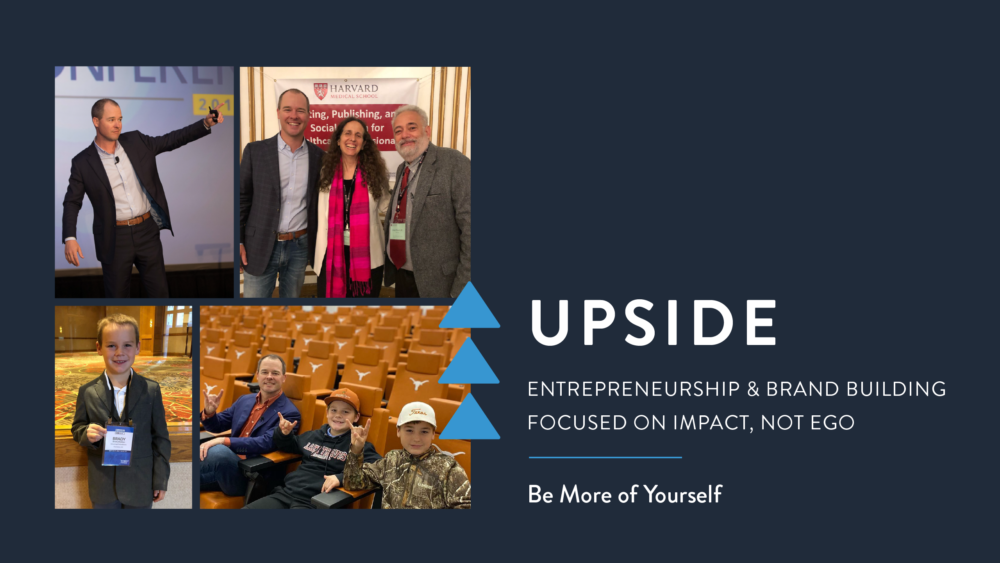Welcome to the 2017 Harvard Medical School Writing, Publishing and Social Media for Healthcare Professionals Conference – we are so excited you are here.
This is my 13th(!) year speaking at this event, which is directed by Associate Professor and the Associate Chair for Strategic Initiatives at Harvard Medical School in the Department of Physical Medicine and Rehabilitation, Dr. Julie Silver, and is among the highest-rated Harvard CME courses each year.
There are many reasons I love being a part of this conference but one key one is that it has really become a community over the years. I always enjoy returning to Boston each spring to see old friends, course alumni and faculty I’ve had the pleasure of speaking alongside year after year.
But the biggest reason I love this course?
You.
Each year I am inspired by your ideas, your energy, your stories and your passion for positively impacting lives around the world. This event brings together an attendee list that includes many of the brightest minds in medicine and our goal as faculty is help you amplify your message by teaching you the most effective ways to write, publish and engage an audience in the new media landscape.
We’re excited – and I hope you are too. As Dr. Silver will tell you in her opening keynote tomorrow, you have a huge opportunity in front of you at the conference this year.
How can you make the most of it?
Here are five ways to do so:
1. Get out of your comfort zone
You made the investment of your time and resources to travel to Boston for three days to participate in this conference.
How much are three days of your time worth?
I’m not exactly sure but I would guess it’s worth a whole lot. You should be commended for making this investment in yourself and your message.
But if you don’t approach the conference with the right mindset, you’re not going to get everything you can from it.
The biggest encouragement I’m going to give you is to connect at this event.
Connect with the faculty. We’re here for one reason – to give you as much value as we possibly can and the best way for us to give you value is to answer your questions and guide you in taking your message to the next level. The alumni group of past attendees to this course is a pretty impressive collection of success stories and we (the faculty) take it very seriously that each and every person who attends has an actionable plan when they leave. Don’t be shy – we’re eager to talk to you – come find myself, Lisa Tener, Dr. Diane Radford and others at a break and, as jetBlue would say – Just Ask!
Connect with each other. I have heard from many past attendees that the connections they made with other attendees at this course have not only led to lasting friendships but also made a significant impact in their career. Look for opportunities to introduce yourself and understand that there is often much to learn from your peers as well. One great way to get to know many of your fellow attendees will be at the pitch sessions throughout the event and I encourage you to seek out those whose messages resonate with you to introduce yourself.
2. Join the conversation on Twitter –> #HarvardWriters2017
You are going to hear Dr. Silver, myself and many other faculty members talk quite a bit about the power of Twitter to not only build connections with colleagues, journalists and others but also with other attendees of this conference.
The official conference hashtag is #HarvardWriters2017 and you will find a lot of great backchannel conversation happening throughout the conference on it.
I have also started a Twitter list of all attendees that can be found here. If I haven’t yet added you, use the conference hashtag and I’ll make sure you are added.
If you aren’t on Twitter yet, come see me at one of the breaks and we will get you signed up.
If you are on Twitter, let’s do a quick review of the basics to make sure you are set up for success:
- Ensure you have the right Twitter handle – Your Twitter handle should showcase your expertise. For example, if you have an MD or PhD, you will increase the likelihood of high-value interactions if that is part of your Twitter handle (eg @JulieSilverMD instead of @DrJulieSilver or @JulieSilver).
- Get visual – The quality (or lack there of) of your headshot (your avatar) and your header image (the large horizontal picture on your account page) make a big first impression. Make sure your pictures have the right resolution (they shouldn’t be pixelated) and make the kind of first impression that would intrigue a journalist, literary agent or colleague.
- Optimize your bio – Add a full, detailed bio to your Twitter account (up to 160 characters) so others can quickly see who you are and what areas you focus on. To stick with Dr. Silver as an example, her Twitter bio is the following:
Assoc Prof/Chair Dept of PM&R @HarvardMed @SpauldingRehab | Assoc Editor @PMRJournal | #Physiatry #CancerRehab | Dir 2 Harvard Leadership CME courses | My ideas
Notice how she lists her titles, the Twitter handles of her employers, the hashtags of her specific areas of focus, etc. She’s doing a lot here in 160 characters and I want you to do the same.
3. Be present
I talked earlier about the importance of getting out of your comfort zone and making the most of the time and resources you’ve invested to attend the conference and a big part of that is being present throughout the event.
When I encourage you to be present, I mean both with your attention (try to avoid getting sucked in to other ‘work’ and soak in the content) but also with your time. Breakfast is a full hour each morning (7-8 AM) and we’ll have a number of breaks throughout the day, so take advantage of this time to network and build connections.
If you will be fully present with your attention and your time you will maximize the investment you’ve made to be here.
4. Prep your pitch
One of my favorite parts of this conference is hearing the live “pitch” sessions where some of you (if you signed up in advance when you registered for the course) will deliver an elevator pitch for your book idea (or if not a book, your concept).
For many attendees this live pitch in front of the faculty and your peers is the most nerve-wracking and anxiety-inducing part of the conference. I can tell you that these pitches are often one of the most inspiring parts of the conference for all who hear them, so please don’t let fear keep you from telling us more about your message.
I have always found that preparation trumps nerves. Thirteen years ago when I first spoke at this conference I was really nervous. In the month leading up to that first speech, each day at 3 PM I closed my office door and practiced giving my speech to the wall in my office. I knew it like the back of my hand and it was the only reason I was able to battle through the nerves of looking out from the stage at 250 Harvard Medical School alumni to deliver it.
The same will be true with your pitch – the more preparation and practice time you spend, the better it will be.
Tomorrow afternoon from 4 – 5:15 PM Dr. Silver is going to do a “practice” pitch session to help prepare you to give the best possible pitch when it is your turn but I wanted to go ahead and give you a head start by suggesting a three-part framework for your pitch:
- Intriguing opening – Catch our attention with a counter-intuitive, wow statistic or a compelling narrative that causes us to sit up in our seats pay attention to you. There are some pitches where you can hear a pin drop in the room and the speaker has everyone’s full attention – to do this you must grab us quickly with something really compelling or something we’re not expecting.
- Why are you the expert? – Once you have our attention on a certain topic, it’s time to tell us why there is no one else better in the world to listen to in this area. In short, give us some evidence of your expertise. For example, you might use a credentialing statement like “During the past 30 years I’ve been in private practice and have seen more than 1,000 patients, had my commentary featured by the New York Times, the Wall Street Journal and NPR and have created a blog that receives 10,000 unique visitors a week.”
- What is the book or concept you’re pitching? – A great elevator pitch has to eventually get to the meat of the pitch, which is part three. If you have successfully pulled off parts 1 and 2, we’re going to be very eager to hear about your book or concept. Tell us in part 3 about your book idea, your target audience, what makes it different from competitive titles and, most importantly, why someone in that target audience will benefit from it.
5. Have fun!
The next three days offer so much opportunity to make connections and build relationships and I’m looking forward to a great event.
This course that Dr. Silver started has really become a community, built over many years and I want to be the first to welcome you the Harvard Publishing Course family – have fun and I look forward to meeting you this week.




